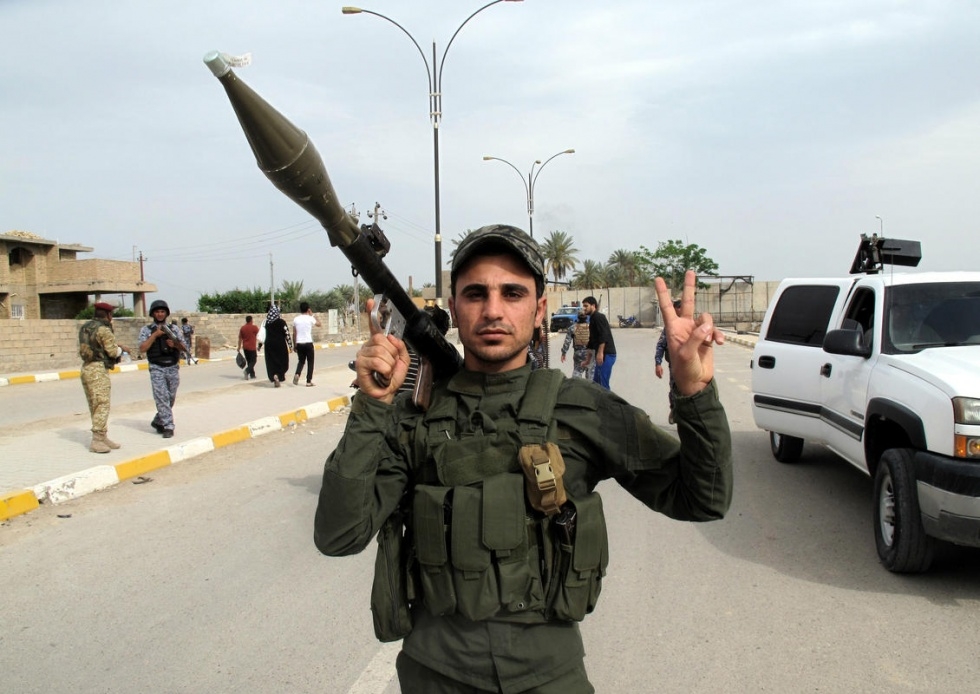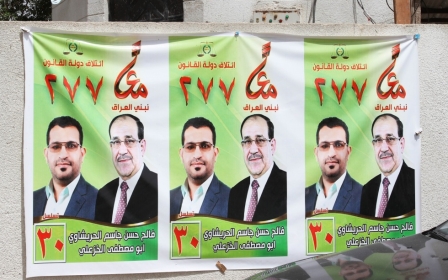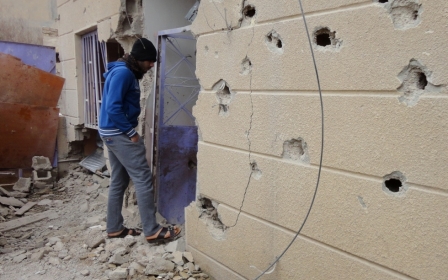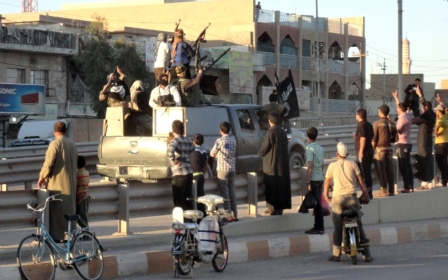Baghdad political rally blasts kill dozens ahead of polls

Twin bombings by a powerful Sunni militant group against a Shiite political rally in Baghdad killed 33 people and wounded more than 100 Friday as the country gears up for parliamentary elections next week.
Reports also emerged early Saturday of a bombing in Mosul that killed 10 people with 21 others arrested, according to military officials.
Campaigning is at a fever pitch ahead of Wednesday's polls, the first since US troops withdrew in late 2011 and with Prime Minister Nuri al-Maliki bidding for a third term amid the worst violence since a brutal Sunni-Shiite sectarian war.
Friday's car bomb followed by a suicide attack hit the rally for the Sadiqun bloc, the political wing of the Asaib Ahel al-Haq (League of the Righteous) militia, said interior ministry spokesman Brigadier General Saad Maan.
Officials had said earlier that 28 people died in the attacks.
New MEE newsletter: Jerusalem Dispatch
Sign up to get the latest insights and analysis on Israel-Palestine, alongside Turkey Unpacked and other MEE newsletters
"A cowardly terrorist attack targeted one of the electoral gatherings in the Sinaa stadium in Baghdad," Maan said in a statement.
The League of the Righteous, a Shiite militia blamed in the past for killing US soldiers and kidnapping Britons, has been linked to groups fighting mostly Sunni rebels in Syria, whose civil war has split the Middle East's sectarian communities, particularly in multi-confessional Iraq.
The Islamic State of Iraq and the Levant claimed the attack, saying it was to avenge the League's involvement in neighbouring Syria.
ISIL, itself fighting in Syria, made the claim in a statement posted on jihadist forums several hours after the attack, but said the bloodshed was caused by two suicide bombers.
"Abu Aisha al-Iraqi and Abu Osama al-Iraqi... managed to enter a gathering of infidels... during their parade... and blew up their suicide belts," said the statement attributed to ISIL.
The claim derisively referred to the group targeted as the League of the Vain.
The attack was "in revenge for what the Safavid militias are doing in Iraq and Sham (the Levant), killing and torturing and displacing Sunnis." It used a pejorative term for Iraq's Shiite majority, linking it to the Safavid empire that once ruled neighbouring, predominantly Shiite Iran.
The rally was reportedly attended by Asaib Ahel al-Haq leader, Qais al-Khazali.
Bloodshed continues as vote looms
Maliki is seeking reelection Wednesday, with little sign of a let-up in the bloodshed and the country still looking to rebuild after decades of conflict and sanctions that have left the economy and infrastructure in dire need of repair.
A number of Shiite blocs are battling Maliki for votes in his traditional heartland of central and southern Iraq.
They include Sadiqun but also the Ahrar movement, which is linked to powerful cleric Moqtada al-Sadr, and the Citizens bloc, a formerly powerful political group seen as close to Iran.
Asaib Ahel al-Haq joined the political process in early 2012, shortly after the departure of US forces from Iraq.
Washington has accused Iran of funding and training the group, a charge Tehran denies.
The group broke away from Sadr's Mahdi Army in 2004, and has also been blamed for the kidnap of British IT consultant Peter Moore and his four bodyguards in 2007.
Moore was released, the only member of the group to survive.
The group is also suspected of being behind an attack in January 2007 in which a US soldier was killed and four others abducted and later found dead.
Four militants killed in Iraq's Ramadi
Meanwhile, four militants from ISIL were killed in clashes with Iraqi security forces in the western Ramadi city, a police chief said Friday.
The fatalities occurred when government forces and tribesmen confronted ISIL militants in the eastern Albo Obaid district, Maj. Gen. Ismail al-Mahalawi told Anadolu Agency.
No casualties were reported among government forces or tribesmen.
The army has waged a major offensive in the Sunni-majority Anbar province since last December with the stated aim of flushing militants – who Baghdad claims are linked to Al-Qaeda – from the cities of Ramadi and Fallujah.
Many local Sunni tribes opposed to Iraq's Shiite-dominated government, meanwhile, continue to voice anger over the army operation's mounting civilian death toll.
Since the offensive began late last year, hundreds of civilians have been killed and injured in Ramadi and Fallujah, according to government officials.
Separately, ten people, including two police officers, were killed and 20 others were injured on Thursday when a booby-trapped car exploded in the central Iraqi province of Babil, a security source said.
Babil is one of central Iraq's most turbulent provinces. The local government says the northern parts of the province, which are close to the Iraqi capital Baghdad and the western Anbar province.
Middle East Eye delivers independent and unrivalled coverage and analysis of the Middle East, North Africa and beyond. To learn more about republishing this content and the associated fees, please fill out this form. More about MEE can be found here.




